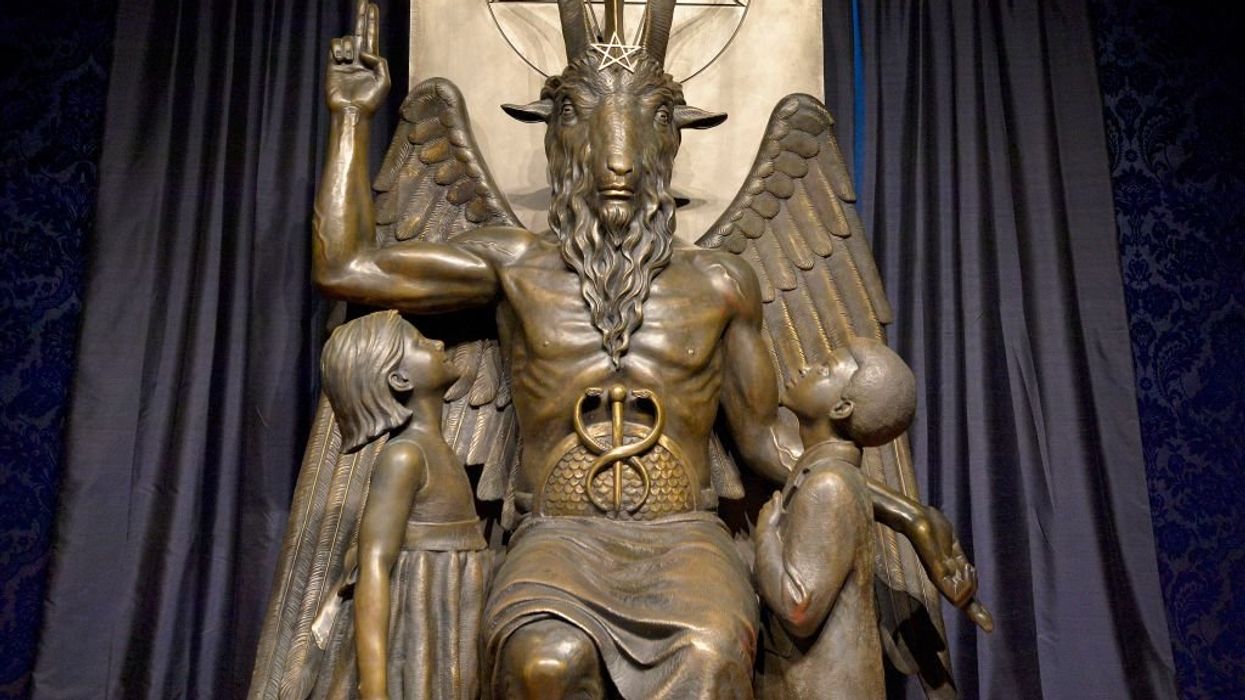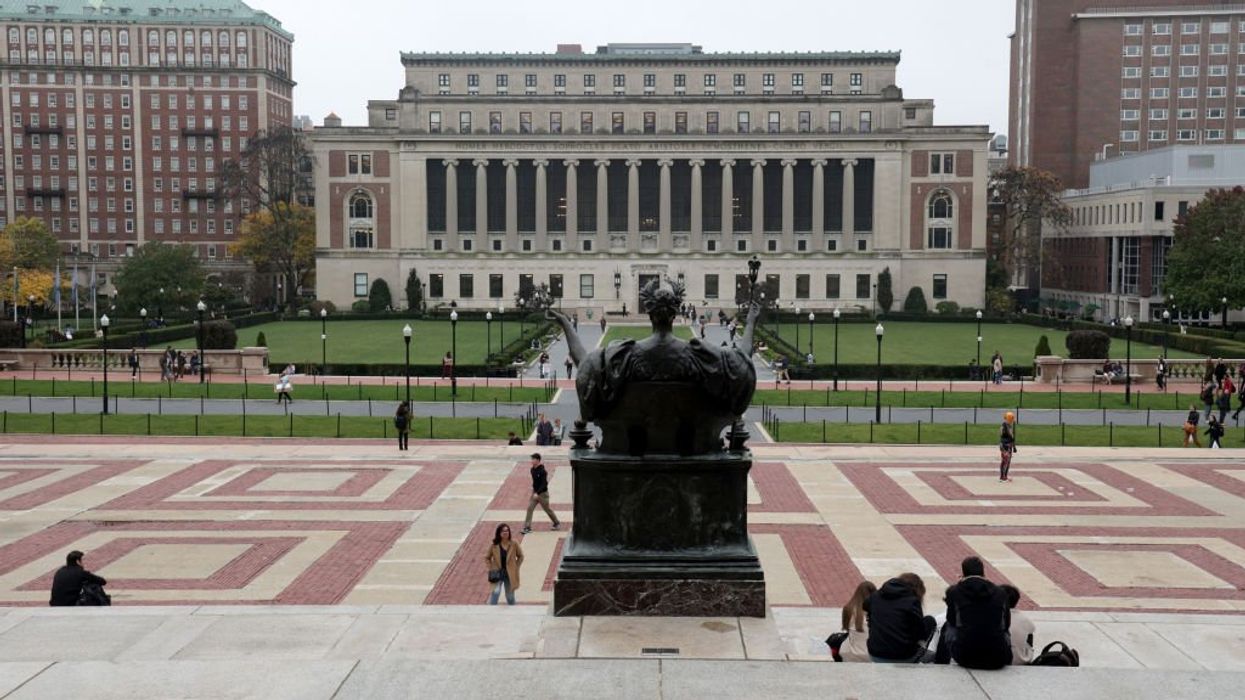© 2024 Blaze Media LLC. All rights reserved.
"Criminal elements of all kinds, including some terrorist entities and rogue security personnel ... are involved in poaching and transporting ivory and rhino horn across Africa.”
Elephants and rhinoceroses are facing extinction because of “well-armed” ivory and horn poachers – sometimes in league with terrorist elements – and only a global approach that includes targeting the poachers and raising awareness will prevent this, according to a White House report released Tuesday.
 Ivory Coast soldiers look towards an elephant during a pursuit to capture him by NGO team IFAW (International Fund for Animal Welfare) as part of an operation to relocate dozens of elephants in conflict with farmers on January 21, 2014 in the village of Tapegue, commun of Daloa. AFP PHOTO/ SIA KAMBOU SIA KAMBOU/AFP/Getty Images
Ivory Coast soldiers look towards an elephant during a pursuit to capture him by NGO team IFAW (International Fund for Animal Welfare) as part of an operation to relocate dozens of elephants in conflict with farmers on January 21, 2014 in the village of Tapegue, commun of Daloa. AFP PHOTO/ SIA KAMBOU SIA KAMBOU/AFP/Getty Images
The National Strategy for Combatting Wildlife Trafficking states that the criminal practice is both an environmental and national security threat. The strategy calls for strengthening protections for African elephants, revoking certain exemptions to the endangered species act that allowed for ivory trading in the United States and using anti-trafficking measures as a negotiating tool in future trade agreements.
The strategy also calls for a postage stamp to help raise public awareness.
“Well-armed, well-equipped, and well-organized networks of criminals and corrupt officials exploit porous borders and weak institutions to profit from trading in poached wildlife,” President Barack Obama said in a statement. “Record high demand for wildlife products, coupled with inadequate preventative measures and weak institutions has resulted in an explosion of illicit trade in wildlife in recent years.”
The key points for the strategy are increased enforced of existing laws to stop trafficking; a public awareness campaign through international diplomacy and media to limit a profitable market for poaching; working with other countries, the United Nations and other international organizations to coordinate the campaign.
“In Asia, increased demand for ivory and rhino horn stems from a rapidly expanding wealthy class that views these commodities as luxury goods that enhance social status,” the strategy states. “As a result, we have seen an increase in ready buyers within Africa who serve as dealers to clients in Asia. Increased demand for elephant ivory and rhino horn has triggered dramatic and rapid upticks in poaching in Africa. Criminal elements of all kinds, including some terrorist entities and rogue security personnel—often in collusion with government officials in source countries—are involved in poaching and transporting ivory and rhino horn across Africa.”
The strategy report also states that illegal wildlife trafficking threatens tigers, sharks, tuna, sea turtles, land tortoises, apes, exotic birds, pangolins, sturgeon, coral, iguanas, chameleons, and tarantulas.
"At this week’s London Conference on the Illegal Wildlife Trade, we hope other countries will join us in taking ambitious action to combat wildlife trafficking. In coming months, we will continue to take further steps to implement the Strategy," said Gene Harris, the White House senior director for African affairs, in a statement.
The report states that the Justice Department will “pursue prosecutions in the United States to remove key leaders and operatives and to break up syndicates.” Further, it calls for working with international allies to target the assets of traffickers, and further go after corrupt government officials facilitating poaching in African countries.
In other countries, the strategy calls for creating “alternative livelihoods to poaching (when applicable) and encourage local community members to participate directly in wildlife protection activities, including intelligence networks and developing channels for the public to report crimes.”
The United States, under the strategy, will seek to partner with the G-8 and G-20, the Asia-Pacific Economic Cooperation (APEC), and the U.N. Crime Commission, the Organization of American States, the Organization for Economic Cooperation and Development, and the African Union.
“We will continue to build support through regional and bilateral efforts, such as the bilateral dialogue on wildlife trafficking we launched as part of the United States-China Strategic and Economic Dialogue in July 2013,” the national strategy said.
Follow Fred Lucas (@FredVLucas3) on Twitter.
Want to leave a tip?
We answer to you. Help keep our content free of advertisers and big tech censorship by leaving a tip today.
Want to join the conversation?
Already a subscriber?
more stories
Sign up for the Blaze newsletter
By signing up, you agree to our Privacy Policy and Terms of Use, and agree to receive content that may sometimes include advertisements. You may opt out at any time.
© 2024 Blaze Media LLC. All rights reserved.
Get the stories that matter most delivered directly to your inbox.
By signing up, you agree to our Privacy Policy and Terms of Use, and agree to receive content that may sometimes include advertisements. You may opt out at any time.


